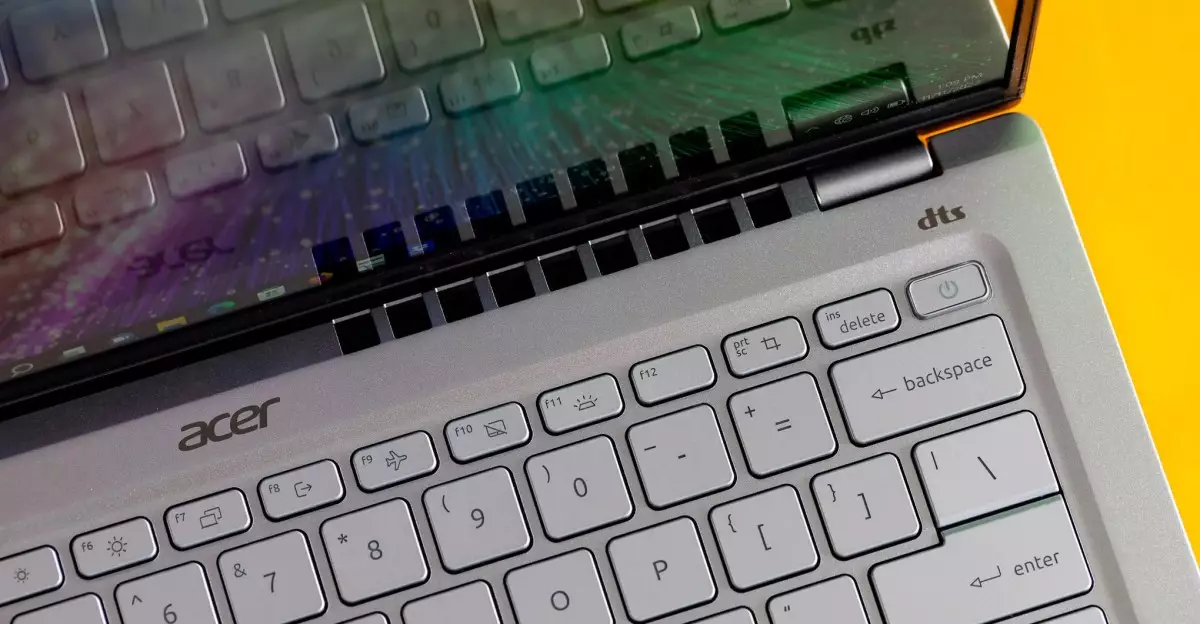The technology industry is bracing for price increases in laptops, primarily due to the 10 percent import tariff on goods from China that was recently announced. Acer CEO Jason Chen has openly discussed the implications of these tariffs, suggesting that consumers in the United States can expect an additional cost on their laptops starting next month. This situation poses critical questions about how such tariffs will influence pricing strategies across the tech market, with potential ripples felt by consumers and manufacturers alike.
The anticipated increase stems from broader economic policies implemented by the government, specifically those affecting international trade. While many tech giants have remained silent regarding their pricing strategies in light of these tariffs, Acer’s proactive stance indicates a significant shift in the market landscape that could lead to increased costs for consumers. Chen’s prediction that a 10 percent hike will likely become the “default” increase demonstrates a concerning trend, where companies might capitalize on the tariff situation to justify price adjustments beyond the original tariff rate.
Potential for Price Gouging in the Tech Industry
One of the most alarming prospects highlighted by Chen is the possibility of price gouging among competitors. He suggested that some companies might leverage the tariff situation to raise their prices even further, exploiting consumers who may feel compelled to pay more. This not only raises ethical concerns but also implications for consumer trust in the tech industry. The question of whether other major players like Apple, Dell, HP, and Lenovo will follow Acer’s lead remains unanswered, as these companies have yet to provide official statements regarding their pricing plans.
Consumer electronics have become an integral part of everyday life, and sudden price increases could lead to significant dissatisfaction among users. The rhetoric surrounding price increases also opens up a dialogue about systemic issues within the tech industry—namely, how companies balance their profit margins against consumer expectations and economic uncertainties.
The logistics surrounding laptop manufacturing also play a crucial role in this issue. Chen indicated that Acer had previously moved its desktop production out of China to mitigate the impact of earlier tariffs. He suggested that similar strategies might be considered for laptop manufacturing to avoid further complications due to increased costs. As the vast majority of the world’s laptops are still produced in China, this shift poses challenges, especially for U.S.-based firms relying on contract manufacturers in Asia.
Alternative manufacturing options, including potential production in the U.S., have started to be discussed, though they come with their own sets of challenges and costs. Companies like Framework, which has opted for manufacturing laptops in Taiwan, present a unique case where the impact of tariffs may be less severe, yet some components sourced from China still create a need for careful consideration of pricing strategies.
As these developments unfold, it becomes imperative for consumers to remain informed about the ramifications of tariff-related price changes. Future consumer electronics pricing is likely to be influenced not only by tariffs but also by manufacturers’ strategic decisions on sourcing and production. The evolving landscape of the technology market will necessitate close observation from both industry insiders and technology enthusiasts alike as they navigate the potential complexities of upcoming purchases. In a time of uncertainty, adaptability and transparency will be vital for maintaining consumer trust and ensuring a healthy tech market.


Leave a Reply
You must be logged in to post a comment.